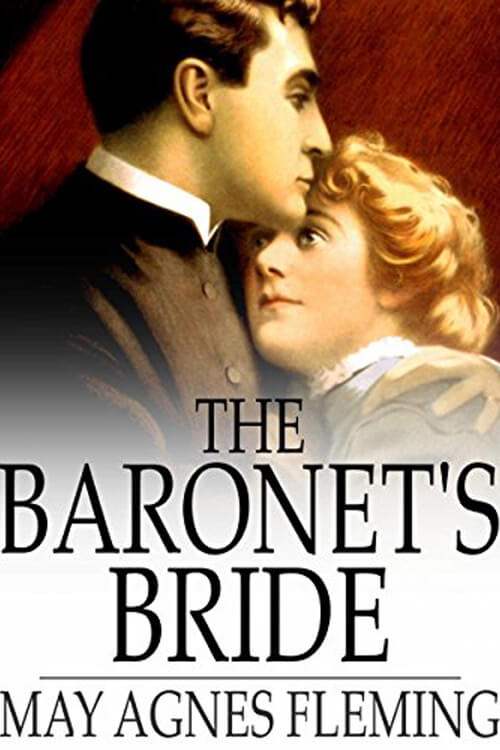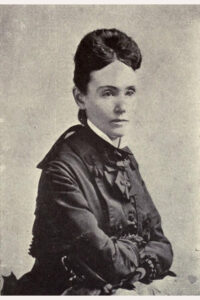
The Baronet’s Bride or, A Woman’s Vengeance
“Twelve,” his dry lips whispered to themselves—”midnight, and for three hours I have endured this maddening agony of suspense! Another day is given to the world, and before it closes, all I love best may be cold and stark in death! Oh, my God! Have mercy, and spare her!”
He lifted his clasped hands in passionate appeal. There was a picture opposite—a gem of Raphael’s—the Man of Sorrows fainting under the weight of the cross, and the fire’s shine playing upon it seemed to light the pallid features with a derisive smile.
“The mercy you showed to others, the same shall be shown to you. Tiger heart, you were merciless in the days gone by. Let your black, bad heart break, as you have broken others!”
No voice had sounded, yet he was answered. Conscience had spoken in trumpet tones, and with a hollow groan, the baronet turned away and began pacing up and down.
It was a large and spacious apartment, this library of Kingsland Court, dimly lighted now by the flickering wood fire and the mellow glow of a branch of wax lights. Huge bookcases filled to overflowing lined the four walls, and pictures precious as their weight in rubies looked duskily down from their heavy frames. Busts and bronzes stood on brackets and surmounted doors; a thick, rich carpet of moss-green, sprinkled with oak leaves and acorns, muffled the tread; voluminous draperies of dark green shrouded the tall, narrow windows. The massive chairs and tables, fifty years old at least, were spindle-legged and rich in carving, upholstered in green velvet and quaintly embroidered, by hands moldered to dust long ago. Everything was old and grand and full of storied interest. And there, on the wall, was the crest of the house—the uplifted hand grasping a dagger—and the motto, in old Norman French, “Strike once, and strike well.”
It is a very fine thing to be a baronet—a Kingsland of Kingsland, with fifteen thousand a year, and the finest old house in the county; but if Death will stalk grimly over your threshold and snatch away the life you love more than your own, then even…
Read or download Book
May Agnes Fleming
May Agnes Fleming (pseudonyms, Cousin May Carleton, M. A. Earlie; November 15, 1840 – March 24, 1880) was a Canadian novelist.
Biography.
She was “one of the first Canadians to pursue a highly successful career as a writer of popular fiction.” May Agnes Early was born in Carleton, West Saint John, in the Colony of New Brunswick, the daughter of Bernard and Mary Early. May Agnes began publishing while studying at school. She married an engineer, John W. Fleming, in 1865. She moved to New York two years after her first novel, Erminie; or The gypsy’s Vow: A Tale of Love and Vengeance was published there (1863). Under the pseudonym “Cousin May Carleton”, she published several serial tales in the New York Mercury and the New York Weekly. Twenty-one were printed in book form, seven posthumously. She also wrote under the pseudonym, “M.A. Earlie”.
The exact count is unclear, since her works were often retitled, but is estimated at around 40, although some were not written by her, but were attributed to her by publishers cashing in on her popularity. At her peak, she was earning over $10,000 yearly, due to publishers granting her exclusive rights to her work. She died in Brooklyn, of Bright’s disease.






